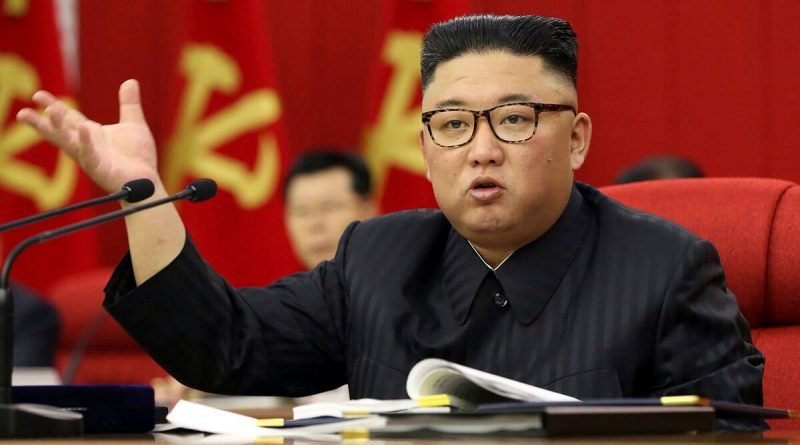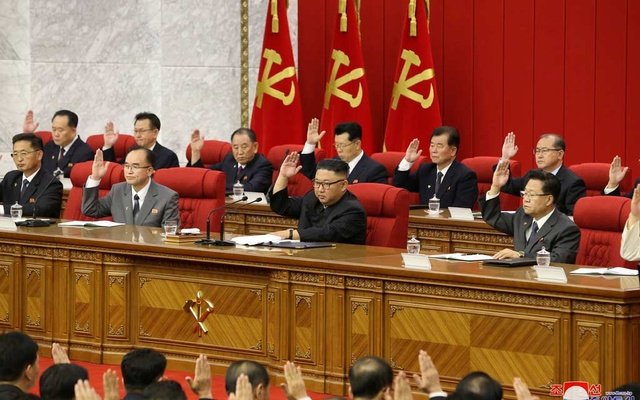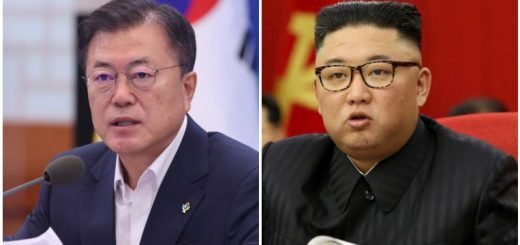Analysis: N.Korea reshuffle signals military policy not top priority now, analysts say

SEOUL, July 8 (Reuters) – New photos confirm North Korea has demoted a military leader in a reshuffle that left the ruling party’s top body dominated by civilians, possibly signalling leader Kim Jong Un’s focus on the economy and frustration with bureaucratic failures, analysts said.
Last week, North Korea announced the latest in a series of leadership changes that may be the most significant reshuffle of top officials in years.
State media has not given details of the personnel changes but analysts believe they included demotions for those Kim blamed for causing an unspecified “great crisis” with coronavirus lapses amid economic problems and food shortages compounded by anti-pandemic border closures.
Photographs published in state media on Thursday of Kim visiting his family mausoleum appear to confirm that Ri Pyong Chol, a top adviser who plays a leading role in North Korea’s ballistic missile and nuclear programmes, has at least lost his position on the politburo Presidium.
Ri, who sometimes wears his military uniform, was seen in the photos wearing civilian clothes and standing several rows behind Kim, indicating his new role is unclear.
A new appointment in his place on the presidium did not appear in the photos, and with those standing next to Kim all civilians, it appeared the military had been “pushed down the pecking order”, said Ken Gause, a North Korea leadership specialist at CNA, a non-profit research and analysis organisation based in the United States.
The military dominates affairs in North Korea and there is no suggestion that will change in the long term, but the changes may signal that for the time being, Kim is unlikely to resume nuclear brinkmanship while he focuses on problems at home, Gause said.
“The focus internally is on the economy, not the nuclear programme,” he said.

‘Rewire’ the regime
It was hard to determine Ri’s fate, let alone draw conclusions about what signal this is meant to send in terms of North Korea’s strategic weapons programme, said Rachel Minyoung Lee, an analyst at the U.S.-based 38 North programme, which studies North Korea, noting that he may be fully reinstated and even reclaim his presidium member title.
The photos also suggest that Choe Sang Gon, a party secretary and director of the science and education department, lost his position in the politburo, while Kim Song Nam, International Department director, and Ho Chol Man, Cadres Department director, may have been promoted to full members, Lee said.
Kim Jong Un has been frustrated by officials not accurately carrying out his directives or communicating information up to him, and the personnel changes may fit with broader efforts to “rewire the guts of the regime” by devolving authority – but not power – down the chain of command, Gause said.
“Kim has tightened his inner circle around a group of technocrats and internal security personnel, the two sectors dedicated to making Juche run at the moment,” he said, referring to the North Korean ideology of self-reliance.
“It is not a long-term plan, but temporary measure given the extraordinary circumstances the regime is facing.”
Michael Madden, a leadership expert at 38 North, said that what looked like a demotion could often be part of a routine shuffle aimed at preventing any one official from building up too much of a power base, or an instance of reassigning a competent and trusted official to handle a particular problem in a more hands-on role.
“Demotions are very common things in North Korea politics,” he said. “We need to keep in mind that things that look like demotions to us can in fact be something else.”
Reporting by Josh Smith Editing by Robert Birsel


















